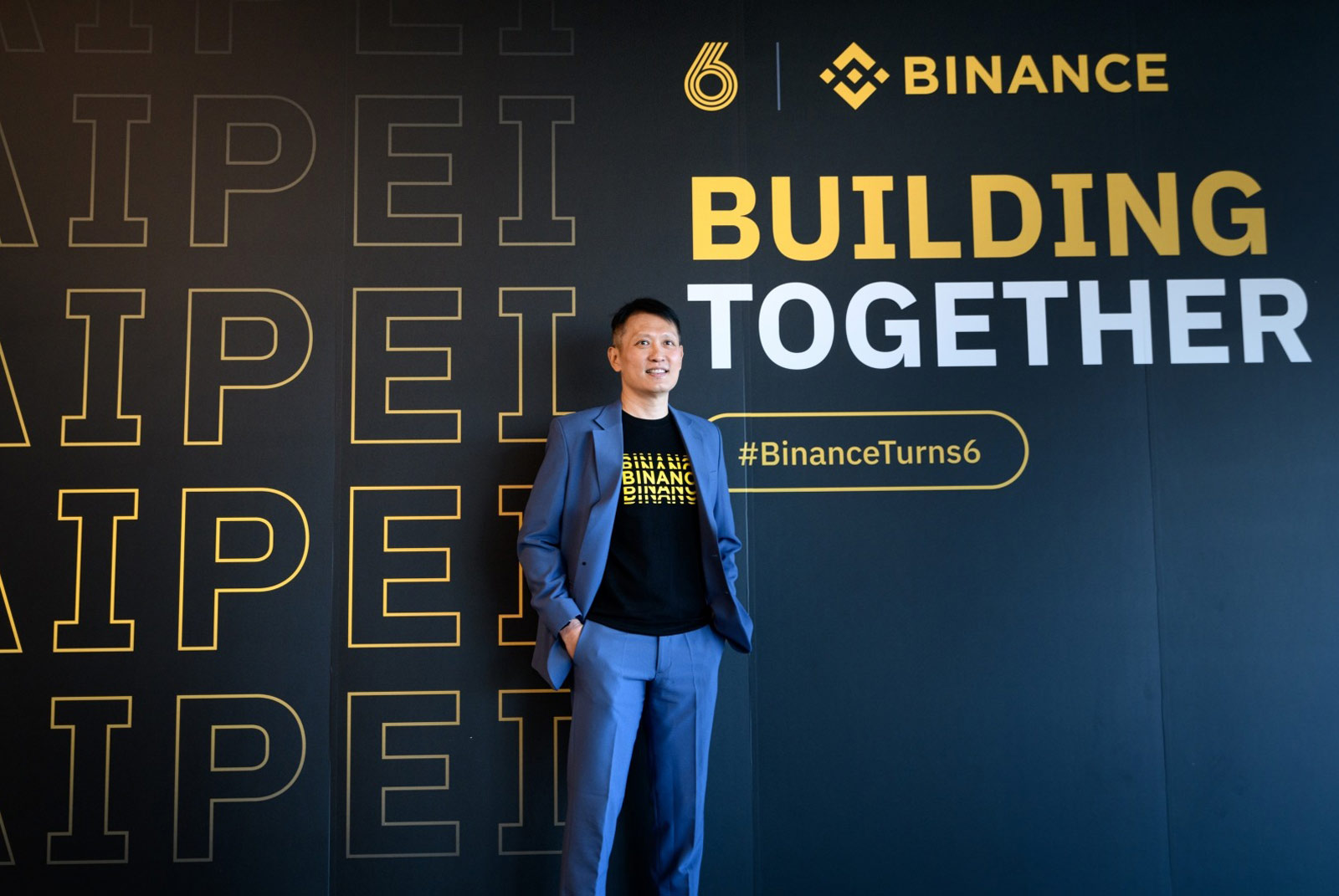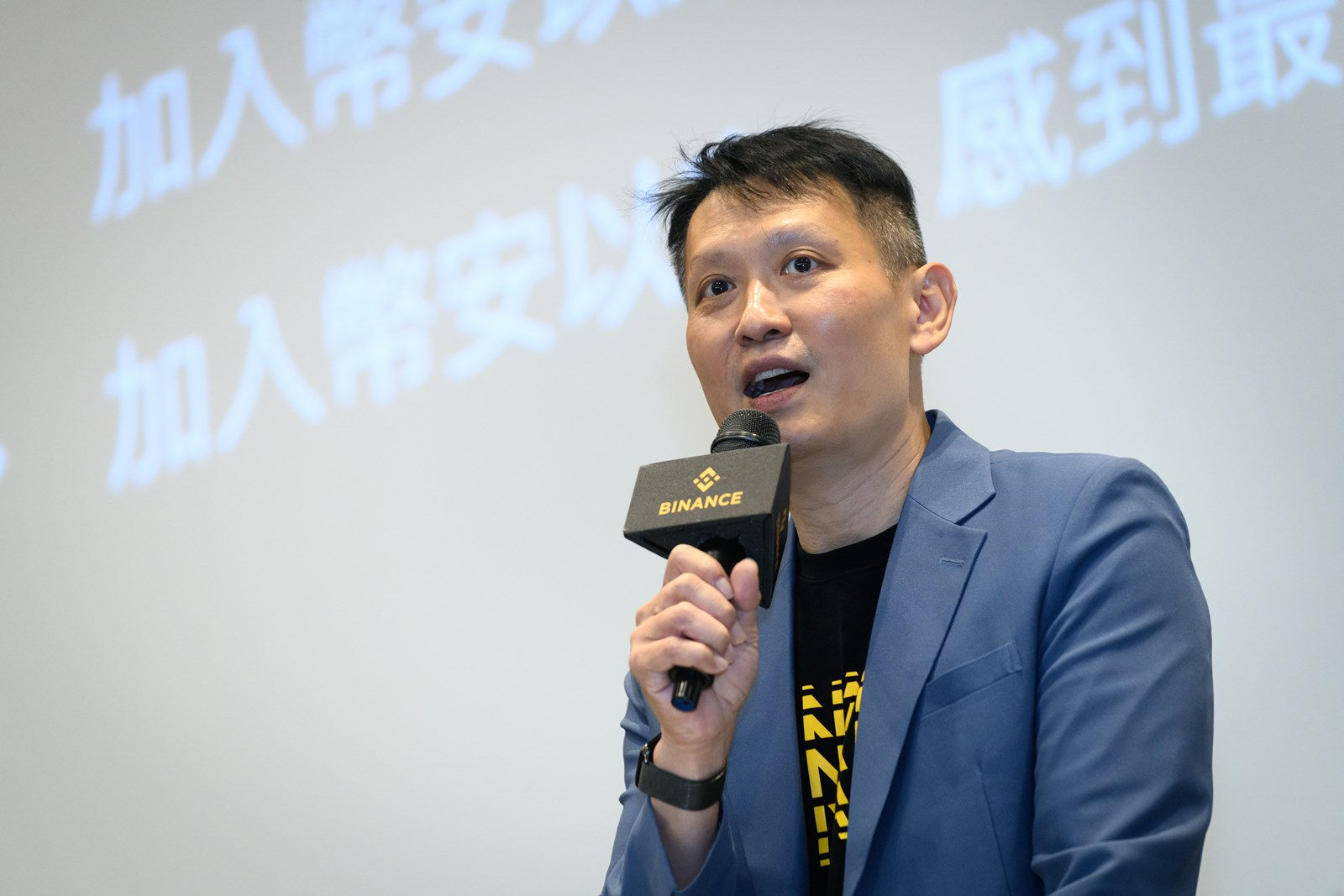Binance celebrates its 6th anniversary, what’s their next move?

Source:Pei-Yin Hsieh
Facing global regulatory scrutiny on the cryptocurrency industry. While Binance has been sued by the SEC, the company's founder, Changpeng Zhao, maintains a strong stance. Meanwhile, a newcomer named Richard Teng emerges with a mission to help Binance expand globally.
Views
Binance celebrates its 6th anniversary, what’s their next move?
By Lisa LinFrom CommonWealth Magazine (vol. 778 )
On July 14th, while Binance boasts 1.4 billion users globally, the exchange celebrated its 6th anniversary with events held worldwide, even though it lacks a headquarters.
Having risen from mainland China, Binance is currently the world's largest cryptocurrency exchange. However, following China's comprehensive ban on cryptocurrency activities, the Canadian founder, Changpeng Zhao (CZ), has been keeping a low profile, and this time, he did not personally participate in any of Binance's celebration events across the globe.
Instead, at the party in Taipei, there was a special guest - Richard Teng, Head of Binance's regional markets. He enthusiastically interacted with participants, taking selfies and uploading them to Twitter.
Referred to by foreign media as "CZ's successor," 52-year-old Richard Teng has become the new public face of Binance amid the exchange's regulatory controversies.
 Richard Teng (Source: Pei-Yin Hsieh)
Richard Teng (Source: Pei-Yin Hsieh)
From engineer to regulatory expert
Unlike CZ, who comes from a software engineering background, Teng is a seasoned regulatory expert with over 20 years of experience in traditional financial regulatory departments. He has held positions at the Monetary Authority of Singapore (MAS), the Singapore Exchange, and served as the CEO of Abu Dhabi Global Market (ADGM), among others.
In August 2021, he joined Binance and is considered instrumental in helping Binance apply for licenses across various regions globally. Within two years, he experienced three promotions, rising from CEO in Singapore to overseeing markets in the Middle East, Europe, and Asia, becoming responsible for all regional markets outside the United States. His rapid ascent reflects Binance's determination to transition toward compliance.
"Cryptocurrencies need two prerequisites to become mainstream: appropriate regulation and institutional adoption," says Teng. This is also why he chose to accept the position of CEO at Binance Singapore, a role offered to him by Changpeng Zhao. As a former regulatory expert, he believes he can bridge the gap between regulatory authorities and cryptocurrency industry players.
The change in public faces, coupled with the US Congress' legislative efforts to regulate digital assets, signals the end of the wild growth era for the blockchain and cryptocurrency industry. Binance has been a beneficiary of this wild growth era, evolving into a cryptocurrency empire with exceptional trading systems, a global user base, and operating in a relatively unregulated environment.
The rise of the biggest crypto exchange
Before founding Binance, CZ was an engineer with over 20 years of experience in developing trading systems. With exceptional mathematical and programming abilities, he initially developed trading systems for the Tokyo Stock Exchange and later worked on futures trading systems for Bloomberg in New York.
In 2005, CZ ventured into entrepreneurship in Shanghai, starting with familiar high-frequency trading systems. This was the time when China's internet technology industry was taking off, with entrepreneurs like Ma Huateng, Jack Ma, and Robin Li founding internet companies that would later impact hundreds of millions of people. Around 2014, the development of cryptocurrencies began to flourish in China.
CZ did not establish Binance in Shanghai until July 2017. That year was the peak of Initial Coin Offerings (ICOs), with triple-digit returns attracting many inexperienced retail investors. The total funds raised through ICOs surpassed US$2.6 billion, experiencing a growth rate of 600%. Many of these ICOs ended up breaking their issue prices, and after the Beijing government's ban on cryptocurrency exchange activities in September of the same year, CZ decided to use 40% of Binance's total funds, approximately $6 million, to reimburse investors in ICO projects listed on Binance.
Despite being a newly established startup of less than two months, Binance managed to maintain investors' confidence and quickly gained fame, becoming the world's largest cryptocurrency exchange in just three months.
An employee who worked at Binance's Shanghai office at the time mentioned that after the ban, they could still work normally in the office in Huangpu District. However, weeks later, they had to take turns going to the office and eventually moved to remote work from home. Many of his colleagues left China and went to countries like Singapore, Japan, and Taiwan. Binance gradually transitioned into a decentralized organization without a physical office, a nomadic entity moving wherever favorable regulatory policies for cryptocurrencies existed.
With a grand vision of "freedom of money," Binance envisions money flowing freely worldwide. Its employees are scattered across different parts of the world, and as long as investors believe in the vision, their kingdom operates without a motherland, embodying a sense of freedom.
To facilitate easier trading of cryptocurrencies for the general public, Binance expanded its services to the fiat world in 2019. Operating in a state of relative decentralization within the cryptocurrency sphere, Binance's business flourished as it successfully expanded to regions like Binance US, Binance Jersey (UK), Binance Singapore, Binance Uganda, and Binance Lite (Australia). With its distinctive yellow and black logo, Binance has incorporated over 170 different currencies from five continents, and users can even buy cryptocurrencies using credit cards.
Binance is not just an exchange; it also has the ability to issue its own cryptocurrencies and develop various decentralized finance (DeFi) products. Feng Yanwen, the founder of Web3 company PolkaWorld, acknowledged that all exchanges want to have their own blockchain, but Binance has a better capability to connect its entire ecosystem through Binance Coin (BNB), securing its position as the leading exchange.
CZ prosecution shows change in monitoring
CZ faces legal challenges as the influence of his revolutionary vision for ultimate freedom grows, leading to increasing controversies. In Binance's 6th-anniversary open letter, CZ acknowledged that the regulatory environment has changed, making it more difficult to expand freely as before.
 CZ of Binance. (Source: Getty Images)
CZ of Binance. (Source: Getty Images)
In the past, Binance could easily enter new markets, but as more countries step into the forefront of cryptocurrency regulation, this space has shrunk considerably. Major markets like the United States, European Union, Japan, and financial centers such as the United Kingdom, Singapore, and Hong Kong have drawn clearer regulatory boundaries.
The blockchain world was once a level playing field, allowing Binance to serve the entire world with a single platform. However, now they face significant challenges. "Each country's regulatory focus is different, with some viewing cryptocurrencies as securities, commodities, or payment tokens, while others consider them as digital assets," said Teng.
Despite facing numerous challenges and competitors falling in the chaotic market plagued by hackers, fraud, and scams, Binance has managed to weather the storm and maintains around 50% of the global cryptocurrency trading volume.
Declining market: Acquiring license to recover
The major challenge for Binance this year is obtaining licenses in key markets and negotiating with regulators. This includes applying for the European passport “Markets in Crypto Assets”(MiCA).
 Binance starts to seek cooperation with officials and the government. (Source: Pei-Ying Hsieh)
Binance starts to seek cooperation with officials and the government. (Source: Pei-Ying Hsieh)
Ko-Weo Tseng, the resident IOTA community ambassador in Singapore, was an early user of Binance. He believes that the worst-case scenario for Binance is the inability to directly exchange cryptocurrencies for major fiat currencies like the US dollar or Japanese yen. Despite this, he still chooses to use Binance. "Binance's reserves are sound, it has good liquidity and is secure," he says. Even if he cannot withdraw directly from Binance in fiat currencies, he can still convert to Singapore dollars and later transfer to other Singaporean exchanges when needed. Despite facing challenges, many Binance supporters remain unwavering in their loyalty.
According to Yat Siu, the founder of Hong Kong's blockchain unicorn, Animoca Brands, and a member of Hong Kong's Web3 development task force, he predicts that Hong Kong will soon issue licenses to cryptocurrency exchanges. He believes that Binance is very likely to return and establish its presence in the Pearl of the Orient once again. "They (Binance) are on the right path," he says, expressing confidence in Binance´s future prospects in the region.
Currently, Teng's efforts have started to yield results, as Binance has become the cryptocurrency exchange with the most regulatory licenses. CZ concluded in his open letter, "Before deciding to create Binance, we already knew that we were embarking on a path that no one had taken before."
The massive Binance has to split and transform, moving from the cloud to the ground, pragmatically facing regulatory requirements from around the world. At this new starting point, cryptocurrency enthusiasts may lament the loss of the free-spirited creativity of the past. However, the task now is to overcome money laundering and fraud accusations and use their belief in blockchain technology to create real value and innovation.
Have you read?
- Taiwan’s new Web3 upstarts
- How Taiwan’s new crypto rich evade taxes
- Paradise lost? How Taiwanese crypto businesses are fighting the bear
Translated by Ian Huang
Edited by Kwangyin Liu
Uploaded by Ian Huang






